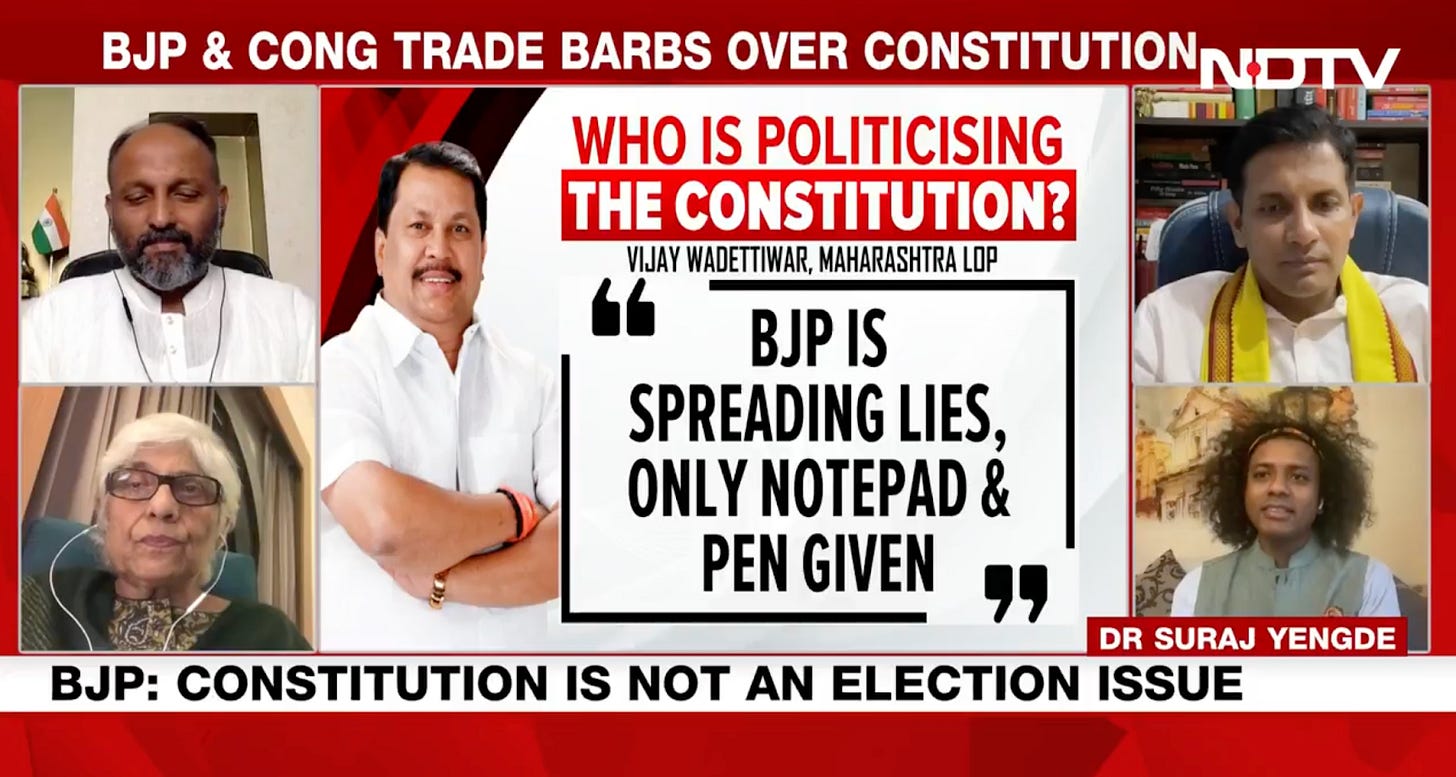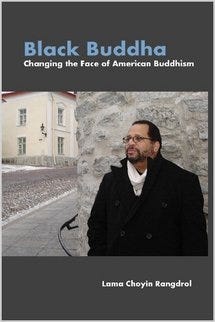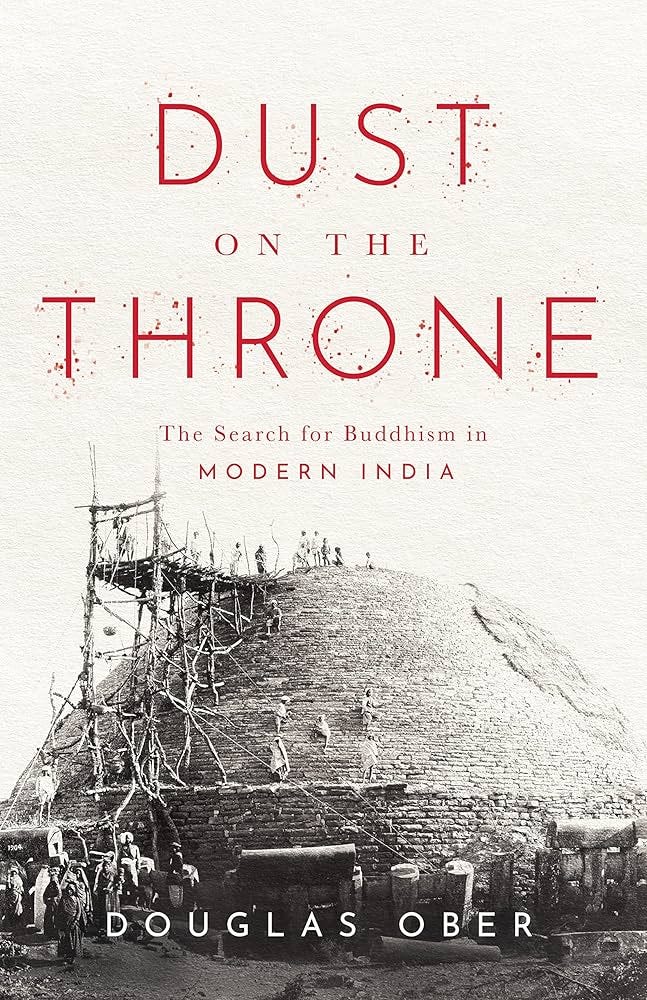From the sets of Origin by Ava DuVernay taken in 2023
Dear Friends:
The Fall is here, and the warmth of the house feels better than the cold outside. I love to be inside and get busy with laziness and nothingness–a trait I have begun to embrace and appreciate. The dopamine to do something productive has ruined our basis of existence. I am not yet at the stage of nothingness, but this is something I hope to achieve as I progress in my life and career.
For now, I am in Slovenia for the next two weeks, and if the VISA gods bless me, I will go to Hong Kong for a conference on Scholactivism, followed by a trip to Malaysia to interview Dalit activists there and meet my buddy. If the plan goes smoothly, I visit India for a few days. I have planned a small convening of scholars working on the Buddhist Emperor Ashoka. This shall be a closed-door meeting in Pataliputra city, now known as Patna, the capital of Bihar state, erstwhile known as Vihar, a place of Buddhist meditation and fellowship.
Current Sociology Special Issue
As you may know, I was invited to deliver a keynote address at the British Sociological Association's Presidential Event in Fall 2023 at the London School of Economics. I presented a paper on how US sociology grappled with the question of caste in the 1930s and 40s. Three respondents, Faisal Devji, John Holmwood, and Meena Dhanda, publicly responded to my paper.
You can hear the talk archived at the BASA website.
Following this, the Current Sociology journal carried a Special Subsection dedicated to Caste and its Implications for Sociologies of Inequality in Vol 72, Issue 7 of 2024.
This report included responses from six world-leading experts: Gurminder Bhambra, Faisal Devji, Meena Dhanda, John Holmwood, Kalpana Kannibaran, and Bandana Purkayestha.
Bhambra looked at the concept of caste and how it animated the Sociology discipline. Offering an introduction to the volume, Bhambra took stock of the sociology discipline and how it wrestled with caste or not. You can read her paper here.
Faisal Devji's comments on the paper complicated the overemphasis of class dovetailing with race and caste. Looking at colonial-era activities, Devji confidently asserts that it is religion that has played an important part in defining the identities of caste and race. Faisal’s paper is here.
Philosopher Meena Dhanda weighs in the philosophy hat and, in particular, her experience of being part of the British academics who researched the UK's caste experiences. She embraces my point & buttresses the possibility of having the epistemology of caste on its own. She dutifully engages through the philosophical posits that I offer. She agrees and disagrees but warmly presents pointers worthy of acceptance. Her paper is here.
John Holmwood examined the important mediator of the debate on both India and US colonialism: Cox’s Marxist approach, which differentiated between pre-modern and modern sources of caste. That is why my critique of Cox has to be studied through this acute difference. He proposes examining the overarching influence of colonialism in this debate, which I had not. Thus, his critique is a welcome call, which can be read here.
Kalpana Kannibaran and Bandana Purkayesth agree with my argument but bring into focus the “kinship” of caste, race, and gender. They engage with two women scholars, the anthropologist Joan Mencher and Gail Omvedt, both vital contributors to the anthropology of caste. Kalpana was among the scholars who were active during the debate of caste vs. race in the wake of the Durban conference. Read their paper here.
Then there is my paper, "Race and Caste in the Making of US Sociology”. You can access it here.
The papers mentioned above are open-access, so have at it. For those that are not, please reach out to me so I can share them with you.
Publications
For my ArtReview column, I take you to my mother's kitchen in Nanded. I go down memory lane of my upbringing and the palates we consumed growing up in a poor household. I will tell you what made it–the Dalit food.
I wrote this piece while driving cross country in South Africa, thinking deeply and long as my mind took me to the little episodes of eating with the family on the floor to hustling for delicious food sold in restaurants and shops. As I cruised through the rural African regions, I noticed the relationship between food and culture is promiscuous. What we eat is sometimes what we reject and do not enjoy it. As we progress in our life, age, class, and migration retell our tongue the tales of deliciousness that we bemoaned in the past.
You may read the piece here. A recently published book chronicles the Dalit cuisine of Marathwada, a region I come from. I have reviewed it but will include it in the next newsletter when it is published.
Media Panels
I participated in the debate at NDTV on the regular political gimmicks played by Indian politicians. It is a very repetitive, reactive scenario, and the media also does not have other exploratory, research-based reportage to do. Please access the video here.
My Vlog
I took an overnight train from Switzerland to Slovenia, my first long train journey outside India. I made a vlog about my experience. You may check it out here. If you like the video, please subscribe and like it.
Other Publications
After Trump's election, the New York Times carried a piece suggesting new coalitions were being formed that considered class as opposed to race as the basis of new politics. The piece looked at how Trump used Latino and Black voters.
“More often, Mr. Trump invited Latino and Black voters into his us-versus-them campaign, rallying them against elites, out-of-touch liberals and the undocumented immigrants he claimed were taking “Black jobs” and “totally destroying our Hispanic population.”
He used cultural issues like gender-affirming surgery for prisoners and transgender female participation in sports — issues that affect relatively few people — as broad metaphors for a left-wing ideology run amok.”
Quoting Yale professor Daniel HoSang, the article ends:
“The results challenge the foundations of racial liberalism that have been dominant since the civil rights movement.”
The topic of new wokeness and its apathy will be discussed for the next few years. A new book, We Have Never Been Woke The Cultural Contradictions of a New Elite by al-Gharbi, an African American scholar, examines what constitutes new wokeness.
The Atlantic carried a review of a book that descends upon the new ultra-woke marauders.
I will order the book soon, but the topic and reviews speak emphatically to me. I wrote an entire chapter against woke news but withdrew from the final edit of the forthcoming book. Maybe I will give a presentation on it somewhere should the occasion arise.
I was recently introduced to the extraordinary corpus of literature on Black Buddhism. I had not known there were some charismatic followers of the Dhamma from the black community.
Professor of Tibetan Studies Jan Willis wrote this powerful article that encourages more representation of African Americans in Buddhist practice and Buddhist organisations that invite other black people to the Dhamma. Read the piece here.
I knew of the black Buddhists only through Lama Rangdrol, a Buddhist priest in the Tibetan tradition who identifies his practice in the Ambedkarite Buddhist liberation theology. He had written a book, Black Buddha: Changing the Face of American Buddhism.
The article “Being Buddha, Staying Woke: Racial Formation in Black Buddhist Writing” by Adeana McNicholl introduces many twentieth-century black American figures. From Harlem era Buddhists Sufi Abdul Hamid, and Madame Fu Futtam to contemporary figures such williams, angel Kyodo, Lama Rod Owens, Alice Walker, Gina Sharpe, Jasmine Syedullah, Pannavati, Zenju Eathlyn Manuel, Pannavati, Charles Johnson, among a host of others. One fascinating notice is that the black Buddhists cover the spiritual life of MLK Jr with that of the bodhisattva, the compassionate person who is preparing to become an enlightened person or the Buddha in future.
Through Buddha’s Dhamma, black folks are introduced to pathways of freedom from suffering and practising morals and meditation for inner peace. Oppressed people need healing that is cured by oneself and takes them on the right path.
There is hope with these figures that the overarching aspect of Dhamma to find nibanna (freedom and enlightenment throughout the body senses) gets admirable recognition and detangles with the capitalists’ professional Buddhism sold for a price tag.
McNicholl also has a book out now.
Another fabulous piece, in Marathi by Prashant Ingole, is a superb survey of Ambedkarite politics in the contemporary era. In it, he argues that the non-political avenues, especially culture and academia, play a pivotal role in describing the political stature of Dalits. The piece in Marathi can be read here.
In News
Congratulations
— To Ashok Gopal for winning the National India Foundation’s Kamaladevi Chattopadhyay Best Book of 2024. This hefty biography of 855 pages is a work of labour and devotion by an unnamed author who knocked on the doors of an independent publisher in Delhi proposing this ambitious work. With the idea of bringing out Ambedkar’s intellectual life and his life’s influences, the book reached the extraordinarily able hands of Alex George and S Anand. Thus, it took a direction of its own, turning into a brick-size manuscript that would last confidently on the shelves.
Last year, at an event in Pune, I bumped into Ashok Gopal, and I had to introduce his incredible work to the audience. See the video here.
— Speaking of which, the season of Ambedkar’s biography is in vogue. Anand Teltumbde came out with an over 700-page non-hagiographic biography of Ambedkar. Read the blurb here.
— Also, congrats to Divya Cherian for winning the American Historical Association’s John F. Richards Prize in South Asian History for her debut book, “Merchants of Virtues”. She earlier won the Joseph W. Elder Prize in the Indian Social Sciences for the same book and is a finalist for the American Academy of Religion's Best First Book in the History of Religions category. Douglas Ober’s Dust on the Throne: The Search for Buddhism in Modern India is also on the same list.
The Caravan spoke to one of the leading Ambedkarite youth leaders of Maharashtra state, Rahul Pradhan, to understand the dynamics and politics of the Dalit movement. Pradhan is a leader of Yuva Panther, founded in Nanded in the late 2000s. I was also part of the operationalising team of the constitution of the Yuva Panther movement. A wide consultation within various chawls and slums occurred by organising speeches, education programs, and rallies. After the efforts, Yuva Panthers was launched. Today, this movement is active, and its leader continues to be on the hit list of the RSS and Congress caste leadership.
In this interview, Pradhan gave wide-ranging responses on the state of anti-caste politics and structure. The corporate world in India, exemplified by Adani, operates like the true power behind the throne—similar to how Elon Musk influences politics in America. A similar dynamic is unfolding in Maharashtra. Adani’s focus is securing projects and profits. Take the Dharavi redevelopment project, which is worth Rs 1 lakh crore. Dharavi is home to SCs, STs, OBCs, Muslims, and other marginalised communities from across India—around 1.5 million people.
You can read the interview here.
Gaurav Pathania reviewed Sandhya Fuchs's book, which documents the status of hate crimes against Dalits in Rajasthan. Fragile Hope: Seeking Justice for Hate Crimes in India, published by Stanford University Press earlier this year, is a detailed work on causes and redressal against Dalit atrocities. Despite favourable and stringent laws, the book observes that the settlement is often done outside the court, fanning the disputed territory of court and police both sides with the caste perpetrators as they come from similar backgrounds and, if I may add, nurse a common hatred against Dalits.
The book has been in the making for some time. The detailed review gives a chapter-wise breakdown of the ethnography. I recommend both the review and the book.
Goodbyes!
The legendary editor and activist of the bygone era, VT Rajashekhar, also known as VTR, passed away at the ripe age of 93.
He was a man of indelible principles who lived for truth and justice. He feared no one and wrote with a thundering commitment. He was a household name from the 1980s to the 2010s.
If memory serves me better, my dad told me about VTR and Dalit Voice. VTR counselled many political leaders and social organisers. Whenever Bahujan history is considered, VTR is among the legions who will be honourably remembered. He and Kanshi Ram wanted to start a Bahujan media out of Noida.
A staunch believer of oppressed unity, VTR proposed dalit-black unity and working-class third-world solidarity. He advocated for a dalit-muslim unity in India, drawing upon the work of his friend and mentor, B Shyam Sundar. VTR has passed away with a foundational legacy to build on.
People like me see him as the forebearers of my thinking and activism. His loss is a vacuum, but his work remains a guide to us. VTR inaugurated my first book, "The Radical in Ambedkar," co-edited with Anand Teltumbde. He commented that when Ambedkar's ideas are urgent, who will have time to read the big book? He referred to the size of the volume.
His public appearances were rare, and his approval to fly down to Bangalore from the coast was a special feeling and a personal memento for me.
Keeping his wit and integrity intact, VTR has endowed the morals of the next generation. His son, my friend, the star of world civil society Salil Shetty, who headed Amnesty International, continues the work. When I first learned about Salil and his role as the top boss at Amnesty, it didn’t move me as much as knowing he was the son of VTR. I took an unprejudiced liking to Salil. And it is not without exaggeration that I still see him as the able son of the great VTR.
VTR preferred to live alone and take care of himself. He was a handsome man who travelled to educate and inspire the activists he knew counted on him. He belonged to the community of “bunts" and now has an icon to look up to, not just Aishwarya Rai.
The bunts can now discard all the desperate Brahminical icons and instead focus on the work of VTR, whom the world appreciates for bequeathing the legacy of the Buddha to Basava to Ambedkar.
Please see my article on VTR, which was written exactly a year ago, here.
The Government of India hosted the First Asian Buddhist Summit on 5-6th November 2024.
Seated in the first seat above and having his relaxing yawn is Guruji Arayawagnso, a Thai teacher with whom I spent the past New Year’s at his temple in Chiang Mai.
November
05 November – Birth Anniversary of Guru Nanak, the founder of Sikhism.
15 November – Birthday of Birsa Munda, the tribal warrior.
22 November – Birthday of Jhalkaribai, the original warrior of Jhansi who fought against the British Army. Laxmibai took credit for her valour and became famous because, god forbid, a Dalit woman got recognised for her important role in changing history.
24 November – “Janta” newspaper started today under the editorship of Dr Ambedkar.
28 November – Death anniversary of Jotiba Phule
until we meet soon.
#JaiBhim #DalitLove
suraj




















Dr Suraj Sir, salute to your dedication, hard work, focusing on so many things at at time, travelling all over the world tirelessly, giving time for family, your fans and public like us, staying updated for all the upcoming news.how can you manage every thing at a time? I think this is the sign of the hardcore Ambedkarite . please take excellent care of yourself,stay fit and healthy , travel safely.we have great respect for you always forever.you are very much precious for all of us.
Namobuddhay jaibhim Dr.Suraj sir.
Thank you Manas Sir
Namobuddhay jaibhim